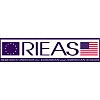National Security and Intelligence Reform: The Case of Greece
In
Log in if you are already registered
During the first decade of the 21st century, as long as national and international security is concerned, terrorism remains a major issue. The events of September 11th 2001 in the USA, March 11th 2004 in Madrid, July 7th 2005 in London and most recently July 18th 2012 in Burgas, Bulgaria, indicate, or actually prove, that the distribution and analysis of information by those who are competent to eliminate international terrorism is inefficient.
Intelligence cooperation is still an obstacle for information analysis due to the combination of a net centric world, which facilitates terrorist groups with ethnocentric perceptions.
Moreover, the fact that intelligence services are integrated into the state apparatus, and as a result suffer from relative bureaucratic weaknesses, has been disregarded. This fact cannot be easily studied due to the covert nature of these particular services.
The writer had the chance to speak with Michael Herman, an academic analyst of the intelligence services (Oxford University), who underlined that «the dramatic increase of workforce in the intelligence area and the fact that most of the employees have obtained a public-employee mentality is the biggest change since 1945. Intelligence services have adopted the features of “Weberian bureaucracy”, which has changed because of the computer technology but it is ubiquitous as a structure». Like the Greek National Intelligence Services (NIS), intelligence agencies in other countries services suffer similarly and undergo the comparable changes within the bureaucratic environment of each country.
During the last decades most intelligence services of European countries, Russia, and the USA have conducted sweeping changes concerning their way of function and action, but also their way of recruiting new executives –highly merit and with constant training-, while they make sure that their workforce is always adjusted to the new environment. All the changes mentioned have brought the managing practices of these services closer to the existing techniques of private organizations and moreover in many cases there is modernization of the logistical infrastructure as well as establishment of new building substructure.
It is important to mention that these changes took place during the transition to the post-Cold War era, when the new facts imposed strict supervision and more effective management of these services by their societies (Parliamentary Oversight). The current economic crisis that plagues our country, with the uncontrollable illegal immigration –which constitutes a national threat for the consistency of Greek society- and the Turkish threat, calls for the establishment of a Greek Intelligence Community, which will be able to cope with the contemporary challenges with high-level skills, efficiency and human resources management.
The National Intelligence Services have to face the need for adjustment to a constantly changing environment in order to serve the interests of Greek foreign policy and support cultural, economic and military choices of the executive authority.
But how can the National Intelligence Services live up to this duty, when Greek interests have not yet been clearly determined and a national strategic plan has not been constructed? The National Intelligence Services should be an elite service and being treated like one by all Greek governments. Prof. Ioannis (John) M. Nomikos (RIEAS Director) has repeatedly referred to the need for modernization of the National Intelligence Services in articles published in academic journals that included some of the following suggestions:
1) Establishment of an Intelligence Academy which will provide academic education giving the corresponding diploma in studying intelligence services and creating a new generation of talented operational analysts,
2) Establishment of a department –within the Academy- for the communication strategy of the National Intelligence Services with Greek and foreign media and
3) Smoother cooperation with the Parliament and various other agencies.
Greek society is unaware of NIS work and unfortunately treats it with mistrust despite its defence of Greek national interests.
In conclusion, we hope that Greek territory will not shrink due to current geo-economic and geopolitical processes in our area (Balkans, Mediterranean, Middle East) and that intelligence and that our security agencies will be able to prevent any future unpleasant situations.




